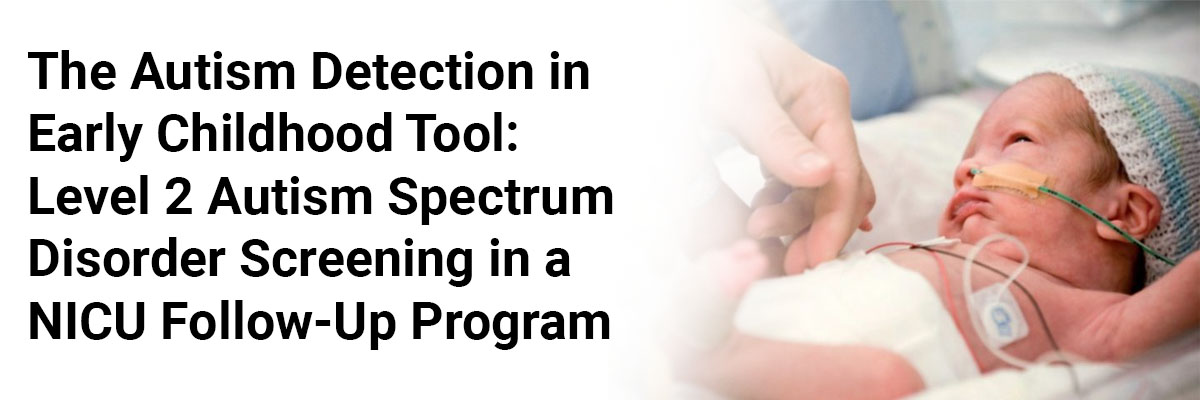
 IJCP Editorial Team
IJCP Editorial Team
The Autism Detection in Early Childhood Tool: Level 2 autism spectrum disorder screening in a NICU Follow-up program
Preterm children have an increased risk of falling for autism spectrum disorder (ASD). But an early diagnosis of ASD is challenging because of the lesser reliability of conventional screening Level 1 tools in this population. A recent study determined if the Autism Detection in Early Childhood (ADEC) and Child Behavior Checklist (CBCL) accurately identify the children at risk for ASD in a NICU Follow-up setting and thus ease referral for formal ASD evaluation.
The study recruited children aged 18–36 months from a NICU Follow-up program and were given presumptive diagnoses based on DSM-5 criteria and screened for ASD risk with the ADEC and CBCL. Children falling in the “at-risk” range on either tool were referred for a full diagnostic ASD evaluation.
The results were as follows-
- 69 patients (median birth weight 1140 g; median gestational age 28 weeks) were comprised with 18 designated “at-risk” for ASD. 13 % of them achieved “at-risk” on the ADEC, while 17 % on the CBCL.
- 13 children experienced diagnostic ASD evaluation with 9 obtaining a formal diagnosis of ASD.
- The ADEC showed the best performance with a sensitivity of 89% and specificity of 98%.
- The CBCL was shown to be lesser sensitive with a sensitivity of 50% and specificity of 90%.
- Requiring elevated scores on both the CBCL and ADEC was rendered specific but not sensitive (with a sensitivity of 33%, and a specificity of 100%).
The ADEC excellently identified children at risk for ASD within this high-risk NICU cohort, adding advantage as an autism-specific screening tool over the CBCL alone.
Source: Haffner DN, Bartram LR, Coury DL. et al. The Autism Detection in Early Childhood Tool: Level 2 autism spectrum disorder screening in a NICU Follow-up program, Infant Behavior and Development, 2021;65. https://doi.org/10.1016/j.infbeh.2021.101650.

IJCP Editorial Team
Comprising seasoned professionals and experts from the medical field, the IJCP editorial team is dedicated to delivering timely and accurate content and thriving to provide attention-grabbing information for the readers. What sets them apart are their diverse expertise, spanning academia, research, and clinical practice, and their dedication to upholding the highest standards of quality and integrity. With a wealth of experience and a commitment to excellence, the IJCP editorial team strives to provide valuable perspectives, the latest trends, and in-depth analyses across various medical domains, all in a way that keeps you interested and engaged.





















Please login to comment on this article